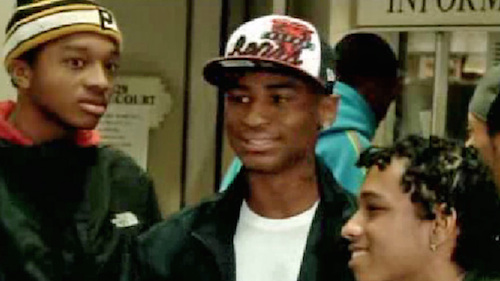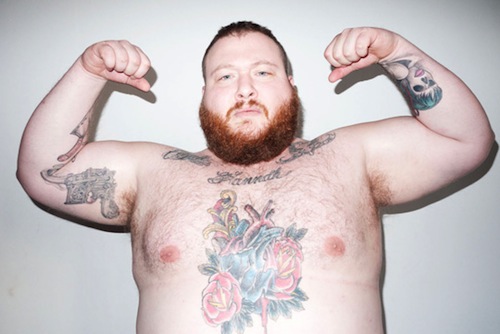
Jamal Knox, Rashee Beasley and another unidentified person, in a grainy photo with no cutline courtesy of KDKA Pittsburgh
Remember when Johnny Cash went to prison for confessing to a Reno-area murder in “Folsom Prison Blues?” I’m joking, of course: Johnny Cash was white. In unrelated news, two Pittsburgh rappers have been found guilty of intimidation of witnesses, conspiracy and making terroristic threats on the basis of a rap video posted on YouTube. Jamal Knox and Rashee Beasley are rappers in the same sense that they are adults, which is to say technically. But they did rap about violence against police officers in a song that mentioned two Pittsburgh cops by name. Both were sentenced to prison by Judge Jeffrey Manning, in what the Times calls a nationwide trend of prosecutors using rap lyrics as evidence in criminal trials.



